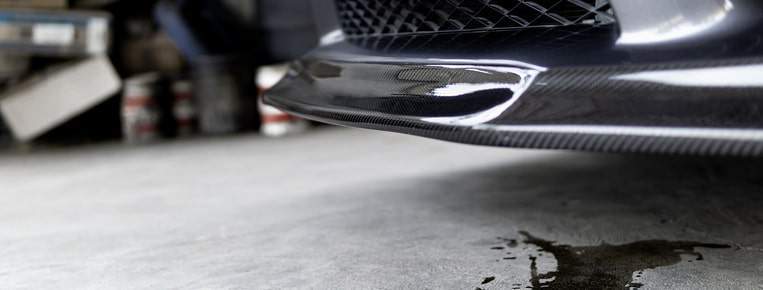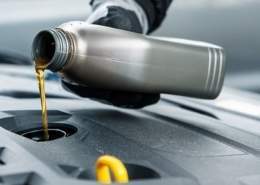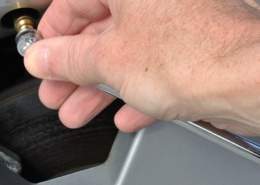Why Does My Car Leak Engine Oil? A Comprehensive Guide
Is your car leaking oil? Learn why it’s happening and how to fix it with our comprehensive guide.
As a car owner, you may have encountered the unpleasant surprise of an oil leak. It’s a frustrating and messy problem that often comes with a hefty repair bill.
But have you ever wondered what causes your car to leak oil in the first place?
We understand the significance of adhering to a strict oil change schedule to ensure the longevity and well-being of our vehicles. However, discovering a pool of oil beneath our car is undoubtedly undesirable.
In this comprehensive guide, we’ll delve into the most common reasons behind oil leaks in cars and provide you with actionable tips to address the issue. Whether it’s a worn-out gasket or a loose oil filter, we’ve got you covered.
So, keep reading to learn more and get your car back on the road!
Why Does Your Car Leak Oil?
Oil is like the lifeblood of your car’s engine. It helps lubricate the moving parts, reducing friction and preventing overheating.
Without enough oil, your engine could quickly become damaged beyond repair. Unfortunately, over time, oil can begin to leak from various parts of the machine, leading to unwanted stains on your driveway and potential damage to your car.
Identifying the root cause of the oil leak is crucial to avoid more significant problems down the road.
This guide will examine the main reasons your car might leak oil, including damaged gaskets, worn-out seals, and loose oil filters.
We will also provide a step-by-step guide to help you diagnose the problem and discuss your options, from DIY fixes to seeking professional help.
So, whether you are a novice or an experienced driver, keep reading to learn how to address the issue and keep your car running smoothly for years.
Why it’s Important to Diagnose and Fix Oil Leaks Quickly
Oil leaks may seem minor, but they can quickly become a more significant problem if left unaddressed.
Here are some reasons why it is essential to have oil leaks swiftly fixed:
- Prevent engine damage: Your engine needs oil to function correctly. If oil levels become too low due to a leak, your engine’s moving parts can start to grind against each other, causing significant damage. In some cases, the engine may even seize, which can be a costly repair.
- Avoid safety hazards: Oil leaks can create slippery spots on the road, increasing the risk of accidents. Also, leaking oil can contact hot engine parts, creating a potential fire hazard.
- Save money: While fixing an oil leak may seem unnecessary, it can save you money in the long run. Addressing the issue early on can prevent more significant damage to your engine, which can be much more expensive.
- Reduce environmental impact: Leaking oil can also harm the environment, contaminating soil and water sources.
In short, having oil leaks fixed quickly is crucial to prevent engine damage, avoid safety hazards, save money, and reduce the environmental impact.
So, if you notice any signs of an oil leak, such as oil spots on the ground, low oil levels, or strange engine noises, it’s best to get it fixed as soon as possible.
Did You Have Your Oil Changed Recently?
If you notice an oil leak right after having your vehicle’s oil changed, it’s essential to take immediate action.
First, park your vehicle in a safe location and turn off the engine.
Check the oil level to ensure it’s not dangerously low.
Next, inspect the oil filter and drain plug to see if they were adequately tightened during the oil change.
If they appear loose, tighten them securely. It’s also a good idea to check for any signs of damage or leakage around the filter and drain plug.
If the issue persists or you’re unsure about the cause, contact the service center or mechanic who performed the oil change to report the problem and seek their assistance in promptly resolving the oil leak.
The Most Common Causes of Oil Leaks
Various factors, including worn-out gaskets, damaged seals, or a loose oil cap, can cause leaks.
Here are some of the most common reasons why your car might be leaking oil:
1. Worn-out Gaskets
Gaskets seal the various components of your engine together, and over time they can become worn out and start to leak oil. This is especially common in older cars, where the gaskets have been subjected to years of heat and pressure.
2. Oil Filter Seal
An oil filter can cause an oil leak if it is not installed correctly or if the gasket that forms the seal between the filter and the engine is faulty. When the filter is not securely tightened, or the gasket is damaged, it can result in a poor seal, allowing oil to escape and leak out of the engine. Regularly inspecting and adequately installing the oil filter can help prevent this type of oil leak.
3. Damaged Seals
Seals are another critical component of your engine that can become damaged over time. They prevent oil from leaking out of your engine, but if worn or cracked, they can start leaking.
4. Loose Oil Cap
Believe it or not, a loose oil cap can cause oil to leak out of your engine. If the cap isn’t tightened properly, oil can escape from the reservoir and drip onto the ground.
5. Overfilled Oil Reservoir
Adding too much oil to your car’s reservoir can cause the oil to overflow and leak out of your engine.
6. Cracked Engine Block
In rare cases, a cracked engine block can cause oil to leak out of your engine. This is usually caused by overheating or a manufacturing defect.
How to Diagnose an Oil Leak
If you suspect that your car is leaking oil, there are a few things you can do to diagnose the problem.
Here’s what to look for:
1. Oil Stains on the Ground
The easiest way to tell if your car is leaking oil is to look for stains on the ground where you park. If you see oil stains, your vehicle has an oil leak.
2. Low Oil Levels
If your car’s oil level is consistently low, it could indicate your engine is leaking oil. Check your oil level regularly to ensure it’s not dropping too quickly.
3. Smoke or Burning Smells
If you notice smoke or burning smells coming from your engine, it could indicate that oil is leaking onto hot engine parts and burning.
4. Unusual Engine Noises
If your engine starts making unusual noises, it could be a sign of low oil pressure caused by an oil leak.
How to Fix an Oil Leak
Fixing an oil leak will depend on the cause of the problem.
Here are some standard solutions:
1. Replace Worn-out Gaskets
If your car’s gaskets are worn out, you must replace them to stop the oil leak. This is a relatively straightforward job that a mechanic can do.
2. Replace Damaged Seals
If your car’s seals are damaged, you must replace them.
3. Tighten the Oil Cap
If your car’s oil cap is loose, simply tightening it may solve the problem.
4. Drain Excess Oil
If your car’s oil reservoir is overfilled, you’ll need to drain some of the excess oil to prevent it from overflowing.
5. Repair the Engine Block
If your car’s engine block is cracked, it must be repaired or replaced. A professional mechanic should do this more complicated and expensive job.
Frequently Asked Questions
How much does it cost to fix an oil leak?
The cost of fixing an oil leak will depend on the problem’s cause and the damage’s extent. It may be a simple and inexpensive fix in some cases, while in others, it may require more extensive repairs. An essential gasket replacement can cost around $100, while a cracked engine block repair can cost several thousand dollars.
Can an oil leak cause engine damage?
Yes, an oil leak can cause engine damage if not addressed promptly. Running your engine with low oil levels can cause the moving parts to grind against each other and eventually wear out. Additionally, oil can leak onto hot engine parts and cause them to overheat or catch fire.
Can I drive with an oil leak?
While driving with an oil leak is possible, it’s not recommended. Running your engine with low oil levels can cause severe damage, and oil leaks can also pose a fire hazard if the oil comes into contact with hot engine parts.
How long does it take to fix an oil leak?
The time it takes to fix an oil leak will depend on the problem’s cause and the damage’s extent. Simple repairs, such as replacing a gasket or tightening the oil cap, can be done quickly, while more complex repairs, such as a cracked engine block, may take several days.
Is it safe to fix an oil leak myself?
While a DIY mechanic can fix some oil leaks, it’s generally not recommended. Repairing an oil leak can be a complex job that requires specialized tools and expertise, and if it’s not done correctly, it can cause even more damage to your engine.
In Conclusion
An oil leak can be a frustrating and costly problem for car owners.
By understanding the most common causes of oil leaks and how to diagnose and fix them, you can keep your car running smoothly and avoid expensive repairs down the road.
Remember to keep up with regular maintenance and inspections to catch any potential issues before they become significant problems.
















